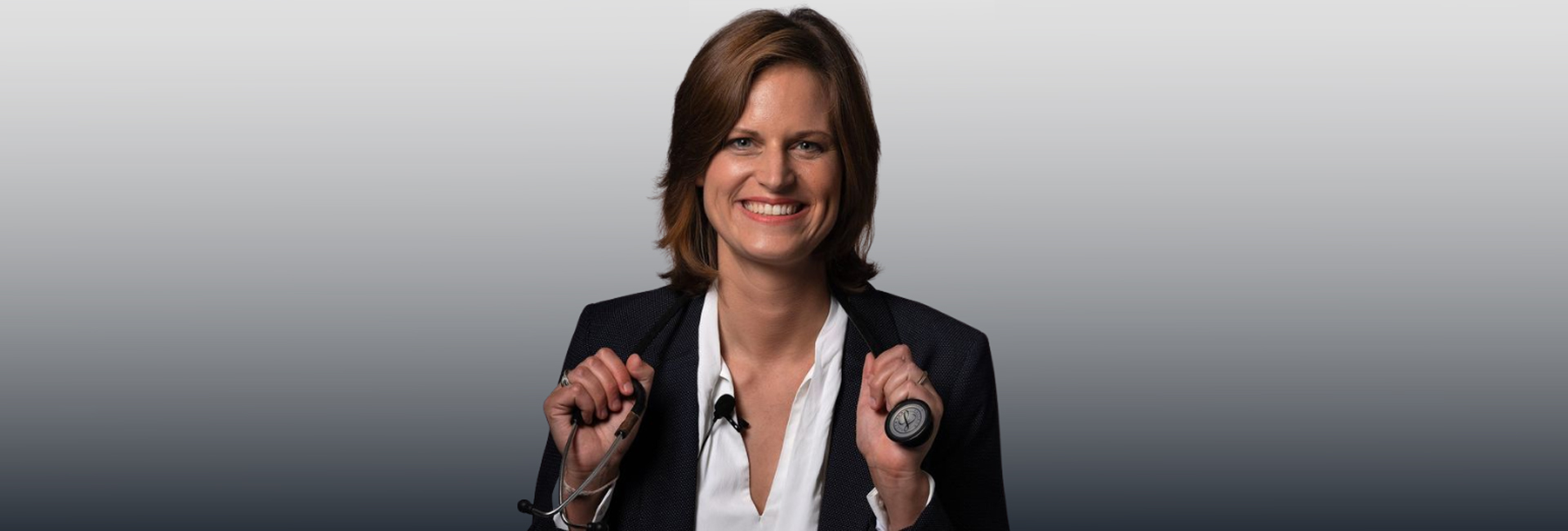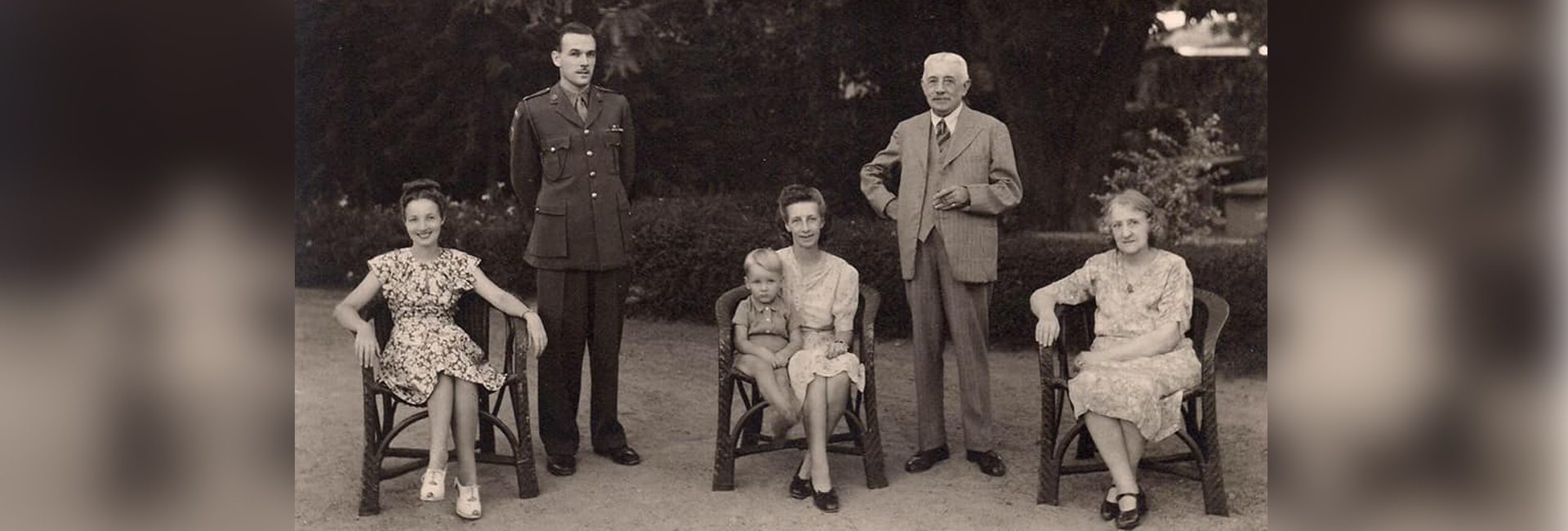(October 27, 2022) Globe trotter and veterinarian Dr Juliet Decaestecker of Belgium has travelled to 35 countries but the longest that she has stayed in any foreign country is India. The country was home to her for four and a half years. When her husband’s tenure as the Commissioner of Trade for Belgium in Chennai came to an end in 2020, they made the move back with heavy hearts.
The couple, who had moved to India with three kids, went back with four. The pandemic had just begun. However, her India-connection wasn’t easy to shake. Even two years after her departure, she remains in touch with her clients, making online diagnoses and giving them tips to keep their pets happy and healthy.
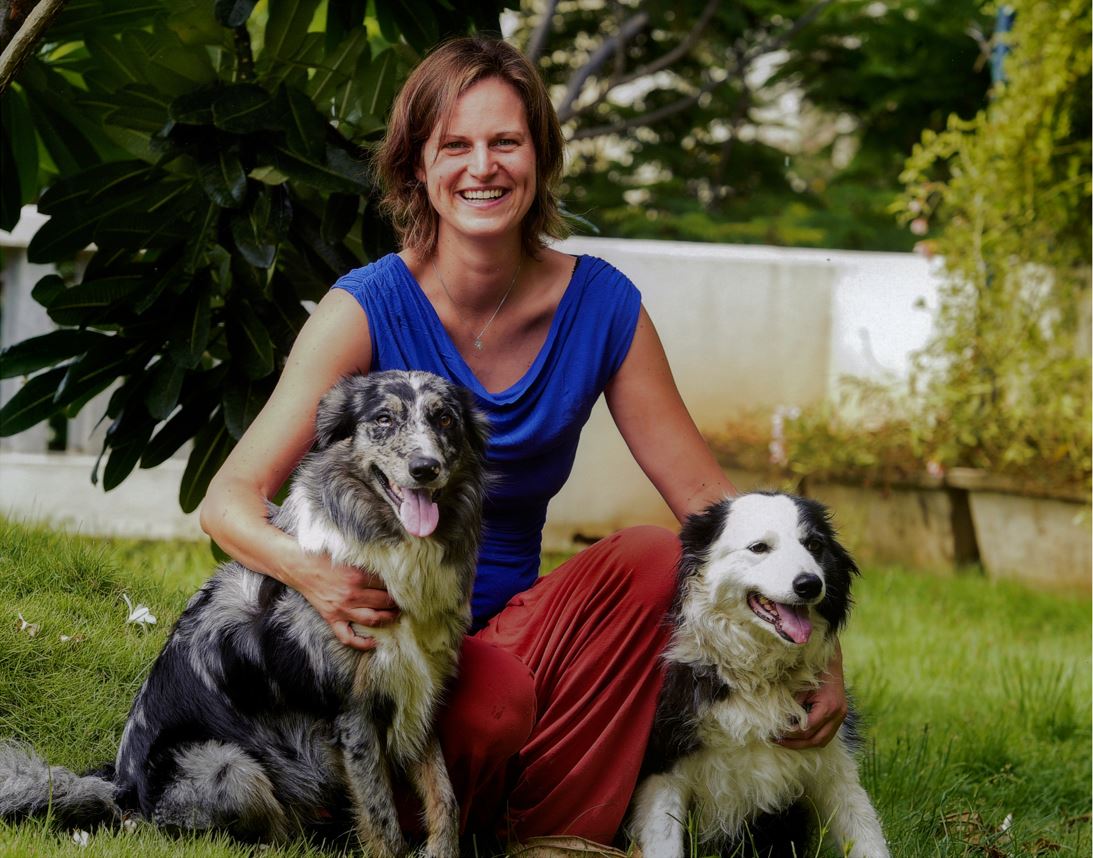
“The memories are still fresh in our heart,” Juliet tells Global Indian from Belgium. During the time she spent in India, Juliet used natural medicines to treat animals, also using the Chinese methods that are her area of specialty. The vet even became an author, writing ‘Healthy Dog, Happy You’ when she was in India, focussing on the different ways in which Indian dog owners can live with their pets.
An ardent believer in natural medicines for animals, Juliet acquainted herself with ancient Indian practices to further her knowledge of indigenous medicine and to treat Indian animals effectively.
“I had enrolled myself for a course in University of Trans-Disciplinary Health Sciences and Technology, Bengaluru not only to learn about Ayurveda but ethno-veterinary practices. The subject encompasses the rich variety of traditional healing practices of India including Tibetan, Unani and folk medicines of different regions, that are not necessarily written down somewhere but have been passed on over the generations,” she says.

Embracing what India has to offer
“Arriving in India was really interesting for me,” she says. Moving to India meant a big opportunity for Juliet to further her knowledge. By this time, she had already been practicing traditional medicines for years already. She found the country rich in history, with immense offerings of indigenous knowledge.
“However, I found that people of the country struggle to balance the two systems of knowledge – the one they learned in the West and their own indigenous heritage,” Juliet says. “It was tricky for me, as I had come to honour traditional culture and knowledge of India, not the western practices that are popular in the country.”

Exploring rural India
The couple love to travel and their zest for adventure took them to India’s rural heartlands, where they connected with local people and healers. “As an expat, I have seen two different sides of India. We chose to connect to the traditional side.” Juliet sent her kids to the local Indian school instead of an international setup, to help them better learn the country’s culture. Instead of seeking the more Westernised system of education, Juliet’s kids learned to draw kolams and to recite the Gayatri Mantra. “The older ones still remember the shlokas,” she says.
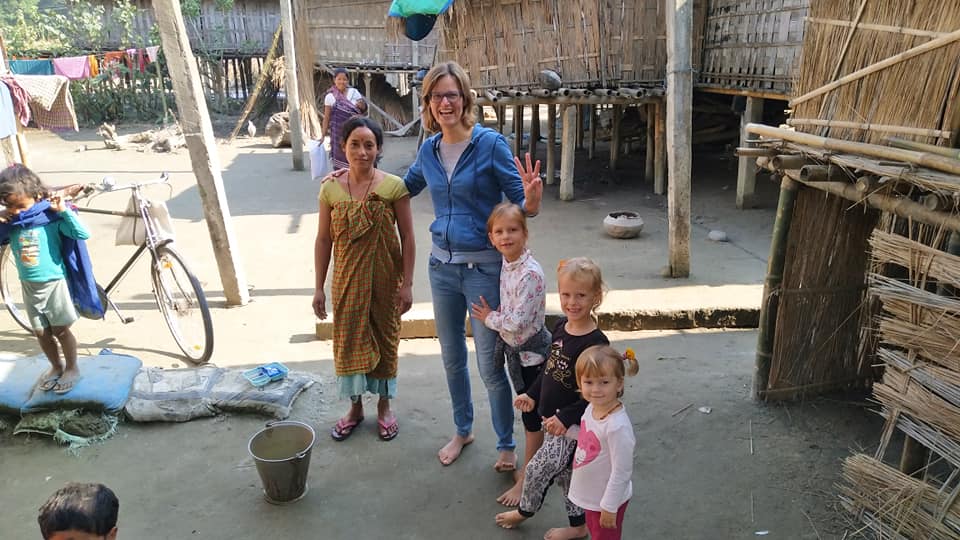
“I saw that in India people do not give much significance to herbs that are available easily in their kitchen gardens or local markets,” says Juliet, who advocates the medicinal properties of local herbs.
Healing by natural medicine
The vet, who has treated thousands of sick animals so far, started her practice in 2012 and has been an independent practitioner since then. After moving back to Belgium from India, besides her independence practice, she has also started teaching at Belgian Veterinary Acupuncture Society (BEVAS), and International Veterinary Acupuncture Society (IVAS), making students aware of how they can heal animals through acupuncture and food therapy.
“People come to me only if allopathy has failed. I am mostly a second-line vet for them.” Juliet makes use of ayurvedic medicine, Chinese medicine, homeopathy or herbs available locally for treatment depending upon the problem.
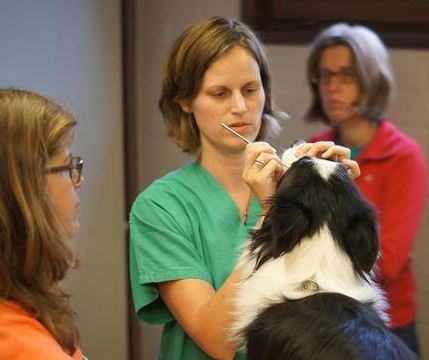
“People call my treatment ‘alternative treatment’ but I call western medicine an alternative treatment because it’s only a few hundred years old. Traditional practices have been passed on to us for thousands of years.” She views western medicine as treatment of symptoms while traditional practices, she says, whether they are from India or any place in the world, address the root cause of the illness. “The principles of traditional medicines are 90 percent the same all over the world,” she says.
In India, Juliet acquainted herself with the Indian names of many significant herbs and learned their properties. It’s equally about medicine as it is about bringing in lifestyle changes. The more committed pet owners are, the easier the healing process.

“I do monthly consultations with my old clients in India. Since I cannot touch their pets, I make them fill up a really big questionnaire about how the animals are behaving to get to the root cause of the problem if any, besides looking at their videos.
How Koko, the parrot made Juliet a vet
Juliet grew up in Flanders, Belgium, extremely mindful of animals around her and deeply in love with her pet parrot, Koko, whom she received as a gift from her parents when she was a child. When her parents got divorced, Juliet stayed with her mom, Koko went to live with her father, because pets were not allowed at the flat her mother rented.
A few months later, Juliet learned that Koko had died. It was shattering news for the little girl, and she promised herself that she would always look after every animal around her. Days passed by but Juliet never forgot the promise she had made to herself, rescuing every injured animal she came across, and worked hard to learn how she could help them.
When she grew older, the career choice to pursue veterinary science came very naturally to her.
The journey of travelling to 35 countries
When Juliet and her husband were 25 years old, they decided that they needed to discover the world, take a risk, be on the road and experience life outside Belgium.
Since they both were independent professionals at that time, it became easier to travel on road and they went on for four and half years, taking up odd jobs where possible, matching their skill sets to finance the exciting trip. “Since we mostly lived in our car, we required little. My goal was to meet endangered species and ecosystems and gather indigenous knowledge of herbal medicine in each country I went to,” she says.

In love with India
“You have so much that you need to cherish. Indian kids think they can achieve much more by coming to the west but I think it’s not like that. India has so much to offer that they can achieve as much as the west, there as well,” she says, adding “Indian kids should learn to preserve their culture, and value what’s there in the country. Awareness about this should be instilled in little ones by elders.”
Reminiscing about the golden times in India, Juliet says that since the couple have been travellers by heart, they went a little bit everywhere – Kerala, Nagaland, North-India, and more. “If I talk about the places I visited in India, it will take hours,” she laughs.

Villages of India are what appealed to her the most. “What I like about villages of India is that there is a close network between people of different professions, they keep culture alive.”
Juliet and her family, husband Aernouts Jean-Francois, and kids, Zia, Lina, Ruby, and Paco are still connected to their acquaintances in India. Not only does she provide online consultations but people who read her book approach her for tips. Ties with friends made over the period of four-and-a-half years have remained.
The couple have kept the connection alive for their kids aged 10, eight, six and three. “Indian friends call us up, and this keeps it alive for them and they still feel connected to the country they love so much.”
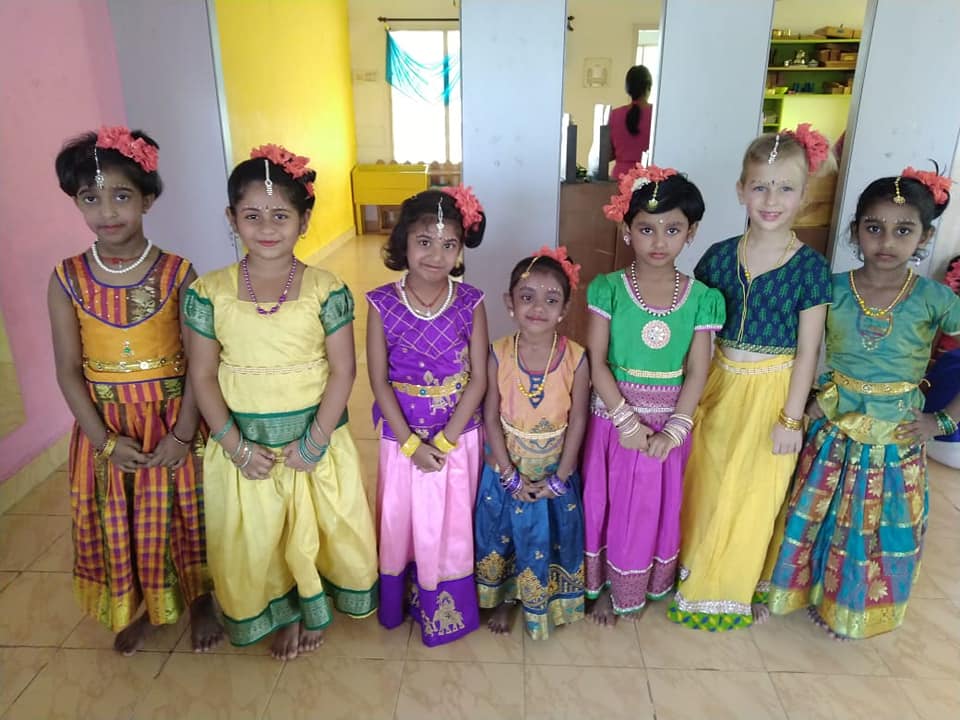
When it comes to food, Juliet talks fondly about the taste of Indian dishes made of okra – ladies’ fingers, and palak paneer is her favourite. “We would love to be in India. Even though there is no work for my husband there now, we would like to go there regularly and meet friends and clients.”
“I love India because of its diversity. People of different cultures live together in one country and this is what is most interesting to me,” she signs off.

